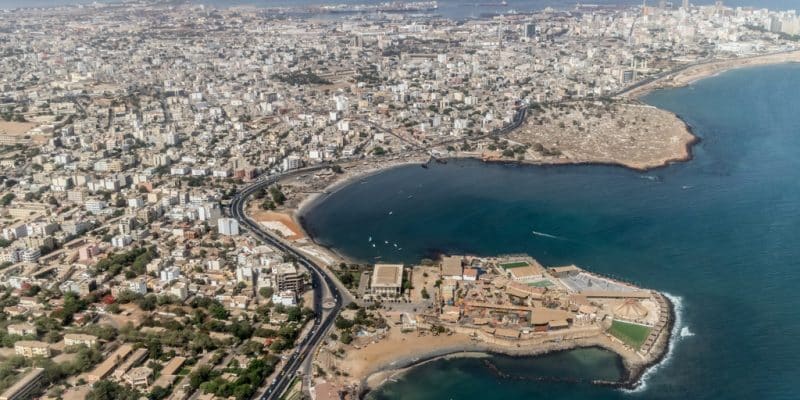The World Bank has approved financing of $135 million to reduce the risk of flooding in the Senegalese city of Dakar. The planned works will be carried out in peri-urban areas of the Senegalese capital.
With the rainy season just around the corner, some 4 million people in Dakar are worried about the risk of flooding. In addition to the intense heat felt in the Senegalese capital, the winter season is also synonymous with flooding, which caused a number of deaths in September 2022. To remedy this recurring problem, the Senegalese government is implementing the Rainwater Management and Climate Change Adaptation Project 2 (PROGEP 2), which has just received a second loan of $135 million from the World Bank.
The first loan of $155 million, granted in 2021, for PROGEP 2 enabled the construction of more than 14 km of primary and secondary canals, protecting 55,000 people and 345 hectares from flooding. “In the wake of these positive results, we are confident that this additional funding will provide structural solutions to mitigate the impact of heavy rainfall in the priority urban areas identified by the government,” says Keiko Miwa, the World Bank’s Director of Operations for Cape Verde, Gambia, Guinea-Bissau, Mauritania and Senegal.
Implementing nature-based solutions
The second loan of $135 million is intended to support Progep 2, which has been extended to peri-urban areas. The work will focus on the epicentre of the 2022 floods. The northern part of Keur-Massar and the catchment area of Lac Rose. At Keur Massar Nord in the Mbeubeuss catchment area, 11.7 km of primary and secondary collectors will be built. At least 10 rainwater retention basins with a total capacity of 165,200 m3 will be built.
Read also- SENEGAL: the water retention basin in Dakar will be renovated to cope with flooding
In the Kounoune-Sangalkam sub-catchment, which is an integral part of the Lac Rose catchment, 27.35 km of primary collectors, 6 retention basins with a total capacity of 120,000 m3 and an outlet to the sea will be built. According to the World Bank, nature-based solutions will be incorporated into the works “wherever possible”. These include green corridors or green spaces around the stormwater drainage structures.
“This should also make it possible to preserve wetlands from future construction, with beneficial effects in terms of adaptation to the effects of climate change“, says the Bretton Woods institution. The recently-granted funding will increase the number of beneficiaries of PROGEP 2 in the northern part of Keur-Massar and the Lac Rose catchment area from the current 120,000 to 184,000.
Jean Marie Takouleu







